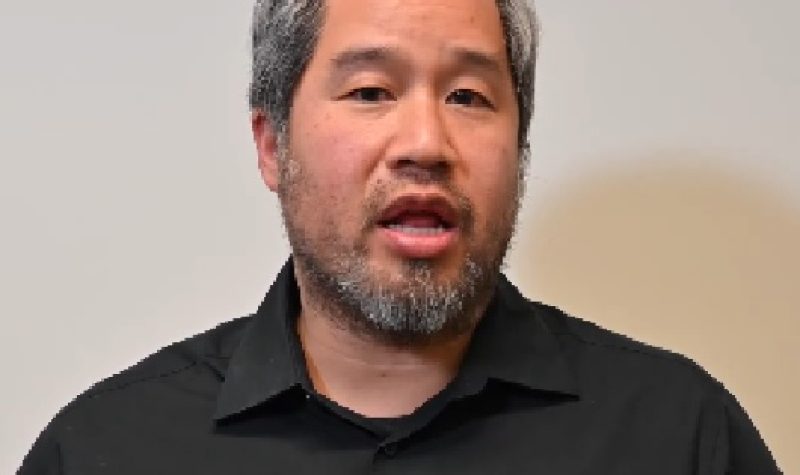An Ottawa scholar is confronting anti-Asian discrimination by addressing systemic barriers in the provincial healthcare system.
When the COVID-19 pandemic arrived in Canada in the spring of 2019, the rate of discrimination targeted at Asian-Canadians skyrocketed. According to statistics from the Ottawa Police Service, hate crimes directed toward Ottawa residents with Asian heritage rose 600 per cent between 2019 and 2020. Survey data from the Angus Reid Institute also indicate that 50 per cent of Asian-Canadians report experiencing discrimination as a direct result of the COVID-19 pandemic, and 43 per cent have experienced threats of violence or intimidating behaviour.
Although the rise of anti-Asian hate in Canada is often attributed to COVID-19, systemic discrimination toward Asian-Canadians and newcomers has had a long history in Canada.
Dennis Kao is an associate professor of social studies at Carleton University in Ottawa, specializing in research on health trends in aging ethnic-minority populations. In April 2021, Kao co-authored a paper alongside other Asian-Canadian scholars and researchers, detailing the history and current state of anti-Asian discrimination in Canada.
In the paper, Kao and his colleagues assert that anti-Asian hate has been programmed into Canadian culture, stating that this brand of racism “is deeply rooted in the historical formation of Canada through the Chinese head tax, Japanese internment camps, the Electoral Franchise Act, which explicitly denied Chinese Canadians the right to vote, and more.”
Aside from experiencing racial discrimination, Asian-Canadians face systemic discrimination at an institutional level when using social and healthcare services.
As a teacher and scholar of Taiwanese descent, Kao wants to shed light on the systemic issues facing his community. He says that one of the reasons Asian-Canadians have difficulty navigating our healthcare system is the contrast between traditional and Western medical beliefs.
“Sometimes there's a mismatch between where the older adults came from, how they've traditionally or historically viewed health and healthcare,” said Kao. “In my culture—my parents are from Taiwan—we talked about this notion of hot and cold: when our bodies are hot and we have to eat food that has cold characteristics. If our bodies are too cold, then we have to eat hot foods. Our health is really more about balance.”
Kao says one of the difficulties the Asian-Canadian community often encounters when navigating the Canadian healthcare system is the language barrier.
“A lot of services are generally not offered in other languages, especially in the big hospitals,” says Kao. “Sometimes there's no policies in the hospital on how to deal with specific languages. [The community health centre at] Somerset West has been able to offer services in multiple languages, including some Asian languages. So a lot of the older adults end up going there. When they need more specialized care, I think it becomes a bigger challenge. Oftentimes they might call on a family member to interpret for them. In that situation, you have issues about whether the person interpreting has enough knowledge in the language on how to interpret medical terminology.”
In addition to encountering systemic barriers within the healthcare system, Kao says many Asian-Canadians maintain stigmas surrounding mental health. In fact, Kao says that mental health “really isn’t talked about” in many Asian-Canadian families.
“That's just not something we deal with,” said Kao. “There's a stigma attached to it. One of the issues that I wanted to hone in on is the devastating impact racism and discrimination can have on one's mental health. Eventually, if you don't deal with your mental health and well being, [it will have] a negative impact on your physical health as well.”
According to data from a survey published by the Angus Reid Institute, 53 per cent of Asian-Canadians who experienced anti-Asian discrimination reported that their experience continues to negatively affect them.
“I think it's very clear that Asian-Canadians have a high level of resiliency,” said Kao. “They've been resilient in in the face of both very overt discrimination and racism, as well as more subtle forms of discrimination. It's great that they're resilient, but being resilient takes a lot of work, and it can be very taxing on one's well being.”
Kao is specifically concerned with the mental health of the aging Asian-Canadian population. He explains that Asian culture largely revolves around group socialisation and the sharing of meals with loved-ones. Although pandemic restrictions have forced people of all ages to adapt to communicating virtually, Kao is worried about the impact this isolation will have on elderly members of the Asian-Canadian community.
“Because of COVID[-19], older adults are even more isolated than they were maybe a year or a year and a half ago,” said Kao. “People's social support systems have been dissipated, [and there is increased] reliance on virtual platforms for communication. But it's just not the same as getting together for a meal. [For] many of the older adults that I work with, eating together and sharing food is such a big part of the culture that's missing in the virtual space.”
Earlier this week, Kao participated in a panel discussion at Algonquin College as part of a new initiative called “Taking a Stand: Disrupting Anti-Asian Discrimination.” The panel was part of a recurring series of events hosted by the college every Tuesday in November, as an effort to combat anti-Asian hate.
Listen to the CHUO story below:


